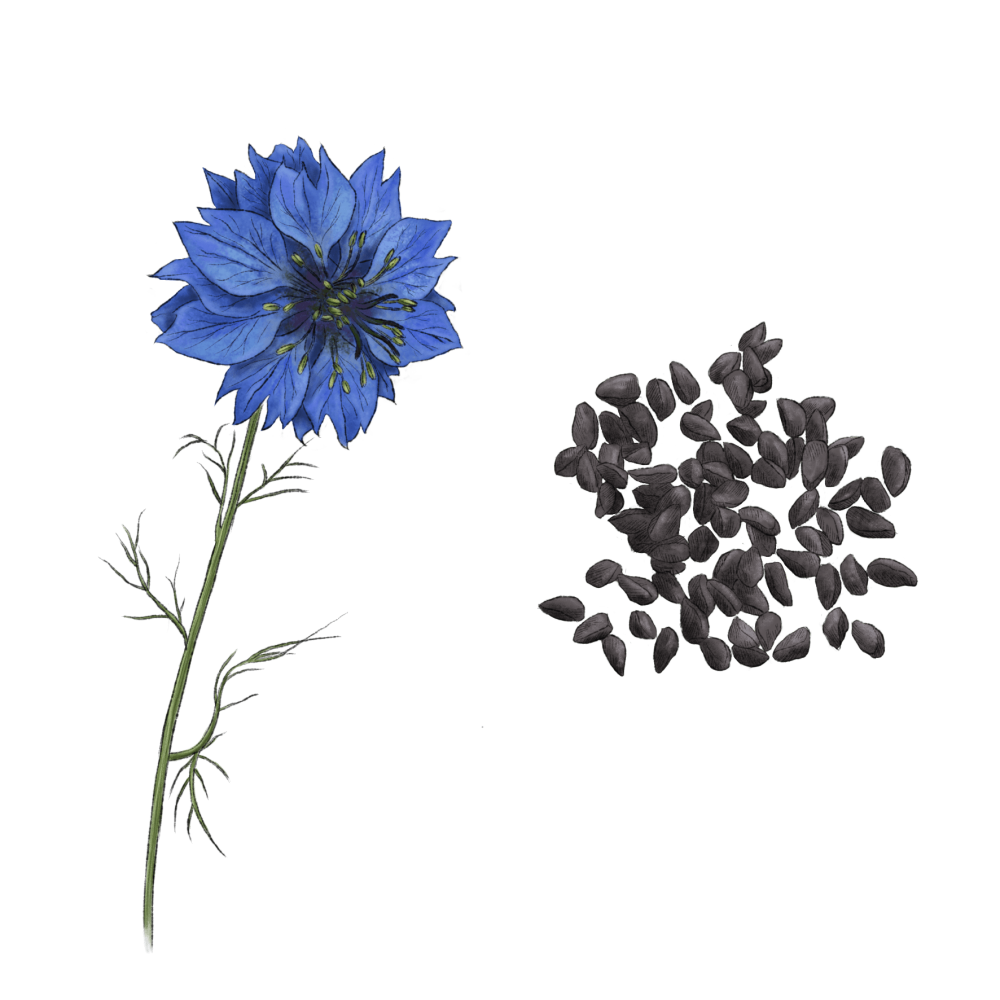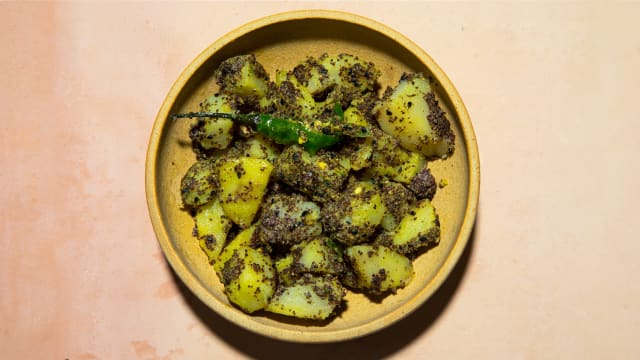Nigella

Latin name: Nigella sativa
Other names: black caraway, kalonji (Hindi)
Uses: spice, preservative
What is nigella?
A member of the Ranunculaceae family, which also includes buttercups and delphiniums, the white drop-shaped seeds grow from blue or white flowers, turning black once they’re exposed to air. The nigella seed has a reputation for both its distinctive taste and its purported curative properties.
Why is nigella healthy?
The most significant compound in nigella is the antioxidant thymoquinone, which clinical studies have shown can reduce inflammation and asthma. Nigella may also help regulate metabolism, lower blood pressure, blood sugar, and cholesterol, and protect against gastrointestinal illnesses.
What does nigella taste like?
The herbaceous, black seed is often confused with black onion seeds, especially since it has a toasty onion flavor, but it is not even remotely related to the pungent kitchen staple. With a warm, savory scent, nigella seeds have a smoky, bitter taste, as well as oregano- and cumin-adjacent notes.
How do I use nigella?
Start by toasting the seeds lightly in a dry pan; as they pop, they release fragrant essential oils.
Used extensively across Middle Eastern, North African, and Indian cooking as a condiment and spice — both ground and whole — these little beauties are a mainstay of Egyptian dukkah and Bengali panch phoron spice mixes, and often appear as a topping for flatbread, white bread, and naan. Great for imparting a nutty flavor to stews, curries, lentils, and vegetables, especially carrots and parsnips, you can use them in all kinds of stir-fries as well as salads.
What does nigella pair well with?
Bringing a subtle, onion-like flavor and definitive crunch to every dish, nigella seeds are a herbaceous swap for sesame seeds. Try sprinkling them on homemade bagels and crackers, or better yet, include them in your morning eggs — maybe with a little cheese, since they enjoy the company of dairy products.
Where does nigella grow?
With its cultivation dating back millennia, the seeds likely originated around Egypt, then spreading through the Levant to Turkey. Wild variants of the plant are also found in the Middle East and India. Today, it’s widely spread across North Africa, western and southern Asia, and Southern Europe.
How to buy nigella:
It's easy to find at South Asian markets or online.
Fun nigella fact:
Nigella seeds are mentioned in the Old Testament, and the Prophet Muhammad is said to have claimed that they are “a cure for every disease except death.”


